21 | she/her | I write stories sometimes (you can find me on ao3 as elenyagrace) | multifandom | in love with all things fantasy | come talk to me anytime if you’d like!
Last active 3 hours ago
Don't wanna be here? Send us removal request.
Text
Coming Home
i. Shasta heard a story once—he could not remember where—in which two brothers lived on an island covered in gray soot. Everything on the island was colorless except the brothers, and every day they looked at each other to remind themselves what color looked like. Shasta didn’t remember how the story ended.
ii. “Home” was not a something for which he had context. Neither was “Brother.” “Father” meant only cruelty and neglect. And yet, Shasta was home now. His brother pulled him into mischief by his elbow and his father asked after his studies at supper. It reminded him, now, of that story from long ago. He was trying to see the world in color, having known only gray soot all his life.
iii. Had he ever seen a violet like the alpine glow off the mountains at dusk?
iv. Shasta went out walking sometimes, trying to understand it. The grass withered and turned brown, and the frost came swiftly behind. It crunched underfoot the way sand did not.
iv. “Father,” Shasta would say, “What color do you say the ice is?” “What color do you think it is, my son,” the king would reply.
v. The ice was many colors. White snow on the ground. Blue where frozen lakes reflected the sky. Faintly green where it hung in icicles from his window. Gold when sunlight passed through it.
vi. Long ago, Shasta had been born the Crown Prince Cor. He’d been born to all of this, to home and father and brother, even if he’d never known of it till now. These were Cor’s tall green trees. These were his violet mountains. This was his family, and his colorless wind that nipped the nose whenever he stepped outside.
vii. And yet sometimes, even years on, Shasta would wake expecting to hear the sea.
viii. He asked Aravis once if she knew the story of the two brothers on the island. She nodded, “Of course. It is from a literary epic in which a bride cleverly tells her husband a story each night in order to postpone her own murder. But how,” here she raised an eyebrow, “did you hear of it?”
ix. Cor (Shasta) shrugged wordlessly, a little embarrassed. He made Aravis give him the name of the story, then turned and scurried off to find the court librarian. “Can you find a book for me?” he asked.
x. He was learning to read, you know. It was difficult. What a strange world, in which the illiterate sons of fishermen must learn to become kings.
xi. One day, during one of his walks as spring was arriving and all the ice was beginning to melt, Shasta (Cor) stood at the edge of a cliff and saw a rainbow arch across to the other side as though it were a bridge. It felt, obscurely, like a promise.
xii. Cor was clumsy-footed and uncertain, but Aslan kept him back from the ledge. He'd build a bridge for Shasta to cross into his verdant, mountainous home. The Great Lion stood fast at every cliff, to make certain that Cor would not fall.
xiii. Aravis found him in the library, struggling over the thick tome which contained the story of the two brothers and their colorless island. The language was more archaic than he was used to, and some of the letters were drawn with flourishes that got in the way of reading.
xiv. But then, Aravis sat down beside him and said, “Would you mind if I read aloud? I did so love that story as a girl.” She did not seem to be making fun of him, so Shasta handed her the book and settled in to listen.
xv. At the end of the story, the brothers escaped the island to a land where the sky was blue and grasses grew tall and green beyond the desert.
#everything about this is so so lovely#I especially adore the way the names keep switching as he's struggling to figure out who he is#tcon#the horse and his boy#they're lighting up the sky tonight for queue
203 notes
·
View notes
Text
Miss Pevensie, they say, can you identify these bodies for us? And you try, gentlest sibling, you try your best. But the tears are thick in your throat and the grief is bitter on your tongue, and when you shut your eyes you see fire and steel, twisting together and crushing the breath from their bodies.
You look at your father, and mother, and cousin, still and silent on their backs, bruised and bloodied and unsmiling, and their faces are anything but familiar. Were their eyes open you would be looking into the face of a stranger. You press your hand over your mouth, and you do not cry, and you tell them what they want to know. These are my parents, you hear yourself say. This is my cousin. They nod, they thank you, they direct you forward. More, more, more corpses to identify. More losses to count.
You look at your eldest brother, golden blond hair spread across his forehead, thick like the mane of a lion. There is gravel in his skin and soot on his cheeks and his face is pale, hands folded over his chest and blood threaded into his yellow sweater. Red against gold. For a moment the combination brushes your brain, touches a distant memory of battle and clashing swords, but you blink and it is gone. This is my brother Peter, you say, in a voice choked with grief. The sky looks black outside the window, and your brother’s arm still feels warm when you touch it a final time.
You look to your younger brother, dark hair tousled, blood leaking between his lips. His skin is frost pale, like snow, so white he appears to be made of stone. Shrapnel cuts into his cheeks and sends crimson trails across his face. His hands are clenched, cap askew on hair smeared with blood. They tell you he died with his sister in his arms, body curled around her in a vain attempt to keep her safe. You stare at him with a lump in your throat, and for a moment you seem to see him, silver crown upon his head, smiling with quiet gentleness. It fades, and you whisper, This is my brother Edmund. The tree outside the window seems to wilt a little as you speak. Your brother’s cheek is like ice beneath your fingertips.
You look last at your sister. She is peaceful, lips lifted in a smile, hair tangled beneath her head and shoulders. She grips something in one hand— a tiny wooden carving. A lion. Your throat clenches to see it, but you do not know why. Her skin is warm, like sunlight, but there is such coldness in her face. Such emptiness. Blood smears her sky blue dress, and you weep to see it. Blood does not belong on your baby sister. For a moment the red makes you remember her, dancing wild by a fire with berry juice smeared on her hands and mouth, but surely not. Surely such a thing never happened. This is my sister Lucy, you murmur, and are able to say no more. For a moment it seems as if a mist touches the window, and your sister’s skin is hot against your palms.
You turn away, raven-dark hair falling over your cheek, and stare out the window with tears burning your throat. There is no sun, and you think that perhaps there will never be sun again. It has been taken away forever.
(For a moment you seem to hear a voice, deep, gentle, loving. To the radiant southern sun. For a moment you feel the weight of a crown in your hair. Perhaps you are losing your sanity, bit by bit. Perhaps it was shattered the moment you heard the news).
They asked you to identify the bodies, and you did, because they are your family. They were your family. You loved each and every one of them. You loved your mother's soft fingers in your hair and your father's deep chuckle. You loved your older brother's fierce kindness and your little brother's quiet demeanor and your baby sister's merriment. You loved them all. And now you stare through the window at a sky that is heavy with rain and think of flames and twisted metal and the blood on your siblings' skin.
You close your eyes. For a brief moment you think you smell lilies, and salt, and Lucy is laughing and Edmund is smiling and Peter's arms are slung around their shoulders, and then they are looking at you and beckoning and there is a lion with golden eyes and the sun is rising into a damp new sky.
Your eyes open slowly, glazed over with tears that spill down your cheeks like rain.
And for a moment, just for a moment, you remember.
#was not looking to cry rn but I suppose sometimes plans change :')#in all seriousness this is heartbreakingly beautiful!#susan pevensie#tcon
511 notes
·
View notes
Text
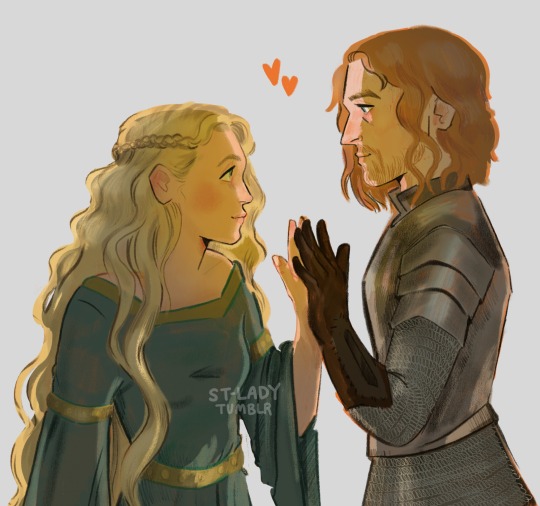
éowyn and faramir
2K notes
·
View notes
Text
Elros and elrond are 6 when they get kidnapped, right? And since they're half-elves they might be a little younger than a human 6. And as someone with a brother who's currently five and a half... i think these kids have some irrational tantrums sometimes
Getting kidnapped? Sure they cry for a while and they're not happy about it but mostly they're calm
Maedhros cuts their sandwiches into squares instead of triangles? And has the audacity to put blueberry jam because they asked for blueberry jam but changed their minds and didn't tell him? Hoo boy
321 notes
·
View notes
Text
I get variations on this comment on my post about history misinformation all the time: "why does it matter?" Why does it matter that people believe falsehoods about history? Why does it matter if people spread history misinformation? Why does it matter if people on tumblr believe that those bronze dodecahedra were used for knitting, or that Persephone had a daughter named Mespyrian? It's not the kind of misinformation that actually hurts people, like anti-vaxx propaganda or climate change denial. It doesn't hurt anyone to believe something false about the past.
Which, one, thanks for letting me know on my post that you think my job doesn't matter and what I do is pointless, if it doesn't really matter if we know the truth or make up lies about history because lies don't hurt anyone. But two, there are lots of reasons that it matters.
It encourages us to distrust historians when they talk about other aspects of history. You might think it's harmless to believe that Pharaoh Hatshepsut was trans. It's less harmless when you're espousing that the Holocaust wasn't really about Jews because the Nazis "came for trans people first." You might think it's harmless to believe that the French royalty of Versailles pooped and urinated on the floor of the palace all the time, because they were asshole rich people anyway, who cares, we hate the rich here; it's rather less harmless when you decide that the USSR was the communist ideal and Good, Actually, and that reports of its genocidal oppression are actually lies.
It encourages anti-intellectualism in other areas of scholarship. Deciding based on your own gut that the experts don't know what they're talking about and are either too stupid to realize the truth, or maliciously hiding the truth, is how you get to anti-vaxxers and climate change denial. It is also how you come to discount housing-first solutions for homelessness or the idea that long-term sustained weight loss is both biologically unlikely and health-wise unnecessary for the majority of fat people - because they conflict with what you feel should be true. Believing what you want to be true about history, because you want to believe it, and discounting fact-based corrections because you don't want them to be true, can then bleed over into how you approach other sociological and scientific topics.
How we think about history informs how we think about the present. A lot of people want certain things to be true - this famous person from history was gay or trans, this sexist story was actually feminist in its origin - because we want proof that gay people, trans people, and women deserve to be respected, and this gives evidence to prove we once were and deserve to be. But let me tell you a different story: on Thanksgiving of 2016, I was at a family friend's house and listening to their drunk conservative relative rant, and he told me, confidently, that the Roman Empire fell because they instituted universal healthcare, which was proof that Obama was destroying America. Of course that's nonsense. But projecting what we think is true about the world back onto history, and then using that as recursive proof that that is how the world is... is shoddy scholarship, and gets used for topics you don't agree with just as much as the ones you do. We should not be encouraging this, because our politics should be informed by the truth and material reality, not how we wish the past proved us right.
It frequently reinforces "Good vs. Bad" dichotomies that are at best unhelpful and at worst victim-blaming. A very common thread of historical misinformation on tumblr is about the innocence or benevolence of oppressed groups, slandered by oppressors who were far worse. This very frequently has truth to it - but makes the lies hard to separate out. It often simplifies the narrative, and implies that the reason that colonialism and oppression were bad was because the victims were Good and didn't deserve it... not because colonialism and oppression are bad. You see this sometimes with radical feminist mother goddess Neolithic feminist utopia stuff, but you also see it a lot regarding Native American and African history. I have seen people earnestly argue that Aztecs did not practice human sacrifice, that that was a lie made up by the Spanish to slander them. That is not true. Human sacrifice was part of Aztec, Maya, and many Central American war/religious practices. They are significantly more complex than often presented, and came from a captive-based system of warfare that significantly reduced the number of people who got killed in war compared to European styles of war that primarily killed people on the battlefield rather than taking them captive for sacrifice... but the human sacrifice was real and did happen. This can often come off with the implications of a 'noble savage' or an 'innocent victim' that implies that the bad things the Spanish conquistadors did were bad because the victims were innocent or good. This is a very easy trap to fall into; if the victims were good, they didn't deserve it. Right? This logic is dangerous when you are presented with a person or group who did something bad... you're caught in a bind. Did they deserve their injustice or oppression because they did something bad? This kind of logic drives a lot of transphobia, homophobia, racism, and defenses of Kyle Rittenhouse today. The answer to a colonialist logic of "The Aztecs deserved to be conquered because they did human sacrifice and that's bad" is not "The Aztecs didn't do human sacrifice actually, that's just Spanish propaganda" (which is a lie) it should be "We Americans do human sacrifice all the god damn time with our forever wars in the Middle East, we just don't call it that. We use bullets and bombs rather than obsidian knives but we kill way, way more people in the name of our country. What does that make us? Maybe genocide is not okay regardless of if you think the people are weird and scary." It becomes hard to square your ethics of the Innocent Victim and Lying Perpetrator when you see real, complicated, individual-level and group-level interactions, where no group is made up of members who are all completely pure and good, and they don't deserve to be oppressed anyway.
It makes you an unwitting tool of the oppressor. The favorite, favorite allegation transphobes level at trans people, and conservatives at queer people, is that we're lying to push the Gay Agenda. We're liars or deluded fools. If you say something about queer or trans history that's easy to debunk as false, you have permanently hurt your credibility - and the cause of queer history. It makes you easy to write off as a liar or a deluded fool who needs misinformation to make your case. If you say Louisa May Alcott was trans, that's easy to counter with "there is literally no evidence of that, and lots of evidence that she was fine being a woman," and instantly tanks your credibility going forward, so when you then say James Barry was trans and push back against a novel or biopic that treats James Barry as a woman, you get "you don't know what you're talking about, didn't you say Louisa May Alcott was trans too?" TERFs love to call trans people liars - do not hand them ammunition, not even a single bullet. Make sure you can back up what you say with facts and evidence. This is true of homophobes, of racists, of sexists. Be confident of your facts, and have facts to give to the hopeful and questioning learners who you are relating this story to, or the bigots who you are telling off, because misinformation can only hurt you and your cause.
It makes the queer, female, POC, or other marginalized listeners hurt, sad, and betrayed when something they thought was a reflection of their own experiences turns out not to be real. This is a good response to a performance art piece purporting to tell a real story of gay WWI soldiers, until the author revealed it as fiction. Why would you want to set yourself up for disappointment like that? Why would you want to risk inflicting that disappointment and betrayal on anyone else?
It makes it harder to learn the actual truth.
Historical misinformation has consequences, and those consequences are best avoided - by checking your facts, citing your sources, and taking the time and effort to make sure you are actually telling the truth.
15K notes
·
View notes
Text
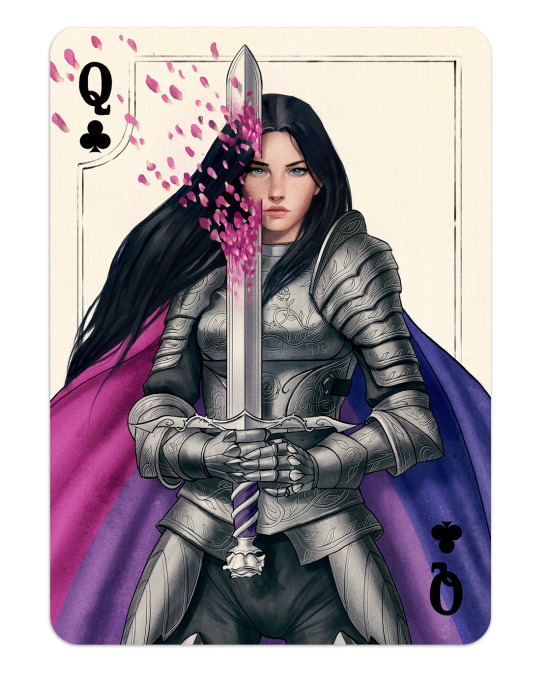
Meet the Queen of Clubs, the bisexual pride knight! Her armor is engraved with floral designs and in her hands she wields a powerful magic sword made from petals! ♣️⚔️
21K notes
·
View notes
Text


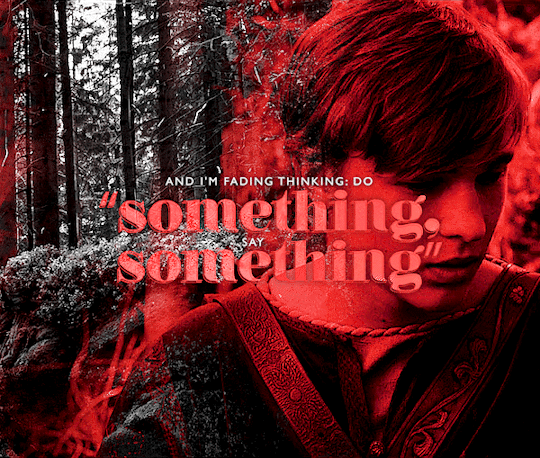



Do I throw out everything we built or keep it? I’m getting tired even for a phoenix always rising from the ashes, mending all his gashes. You might just have dealt the final blow.
416 notes
·
View notes
Text
how can you not love dwarves like so much. there's so much there to love. dwarves are the best why does everyone sleep on how much dwarves rule
2K notes
·
View notes
Text
when bilbo said "I miss my books, and my armchair, my garden. see that's where I belong, that's home, that's why I came back cause, you don't have one. a home. it was taken from you. and I will help you take it back if I can." while looking at thorin with so many feelings that's when thorin realized bilbo could be his home too. try to change my mind. you can't!
869 notes
·
View notes
Photo
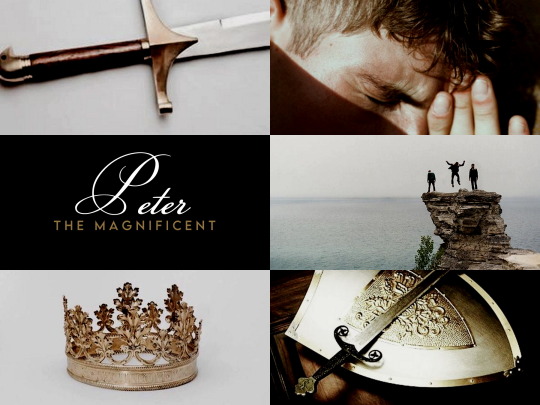
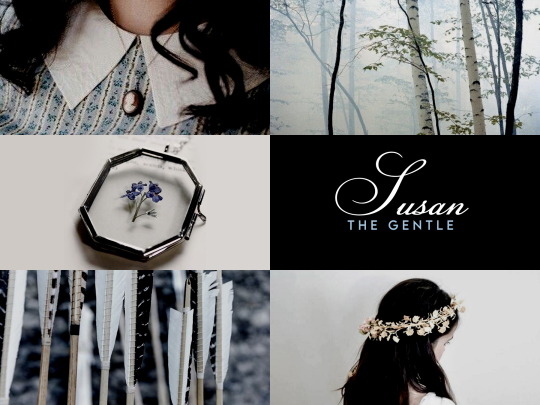
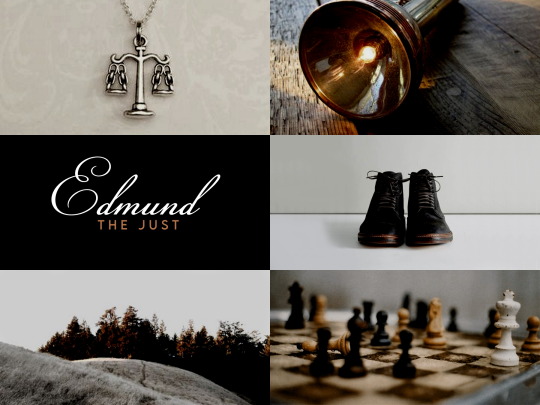
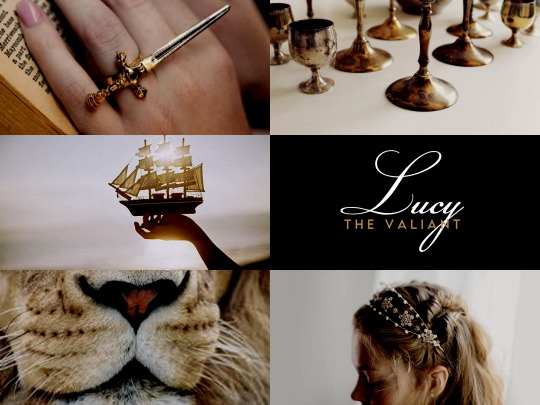
To the glistening eastern sea, I give you Queen Lucy the Valiant. To the great western woods, King Edmund the Just. To the radiant southern sun, Queen Susan the Gentle. And to the clear northern skies, I give you King Peter the Magnificent. Once a king or queen of Narnia, always a king or queen of Narnia. May your wisdom grace us until the stars rain down from the heavens.
1K notes
·
View notes
Text

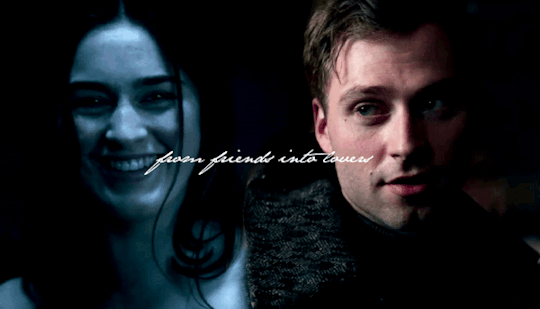

isn't it strange, how people can change?
#ouch okay#literally cannot think of anything else to say because there's just pain in my heart </3#nina zenik#matthias helvar#helnik
160 notes
·
View notes
Text
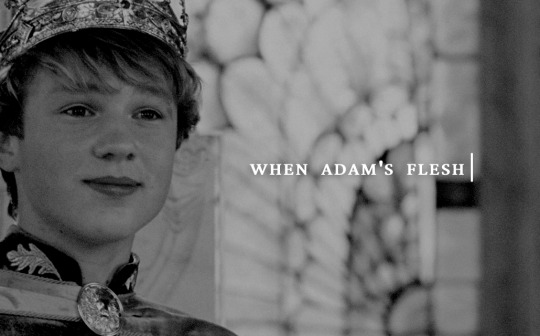
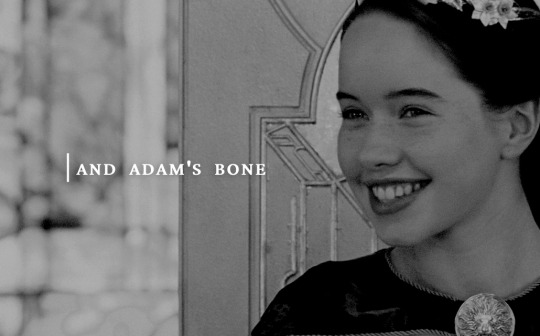
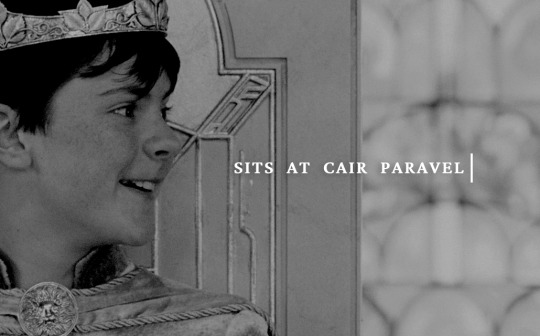

@paletmblr event xvi: free choice
the evil time will be over and done.
607 notes
·
View notes
Photo

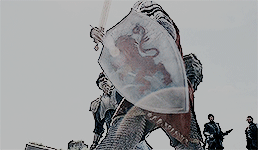




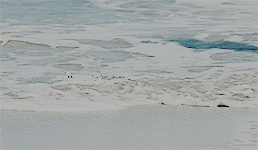

Narnia Week 2018 ↬ ♡ Favourite Male Character ♡
“But do you really mean, sir, that there could be other worlds—all over the place, just around the corner—like that?”
#ahhhh yes I love him a normal amount (I do not)#peter pevensie#tcon#they’re lighting up the sky tonight for queue
767 notes
·
View notes
Text
Yeah I enjoyed this movie a normal amount *opens ao3*
66K notes
·
View notes
Photo


When Peter is talking to Aslan, Aslan says “Beaver also mentioned something about you turning him into a hat”. That line was not originally in the movie. The smile you see is William Moseley smiling because a fly was buzzing around his head, which rendered the shot useless.
#eternally grateful for that fly because this smile is so soft and I adore it#lww#tcon#they’re lighting up the sky tonight for queue
1K notes
·
View notes
Photo

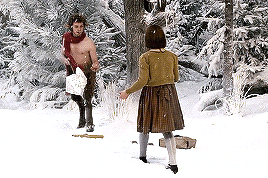

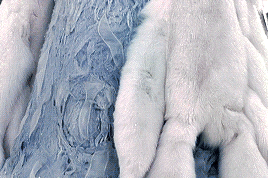
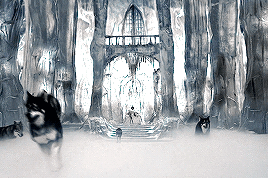





My 10th Tumblr Anniversary Celebration: TV shows/ Movies I grew up with
The Chronicles of Narnia: The Lion, the Witch and the Wardrobe (2005)
#okay but the colours in this film were everything#tcon#lww#they’re lighting up the sky tonight for queue
1K notes
·
View notes
Photo

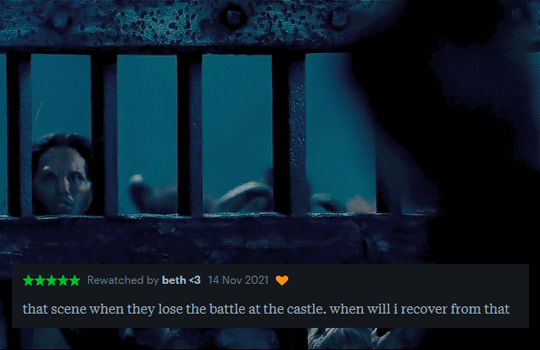



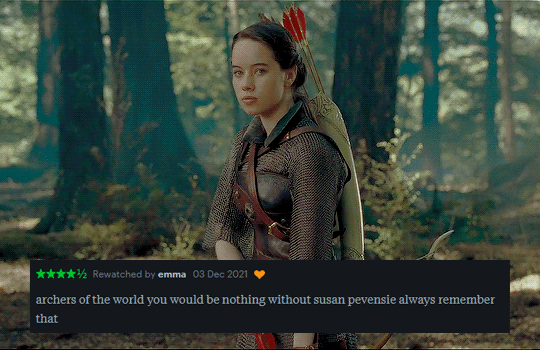
prince caspian + letterboxd reviews
4K notes
·
View notes